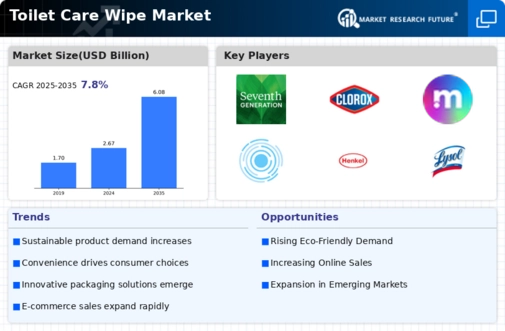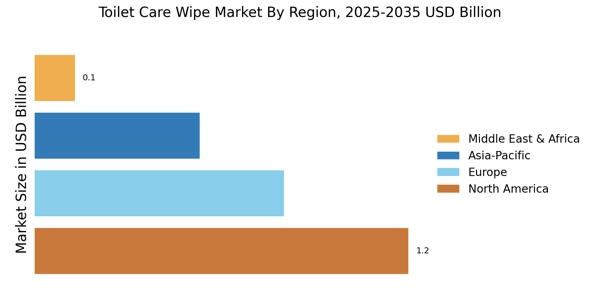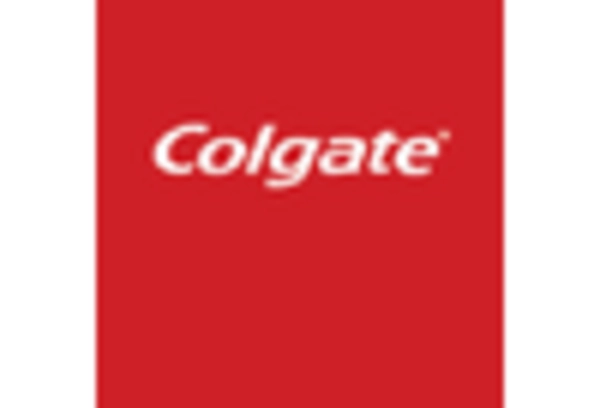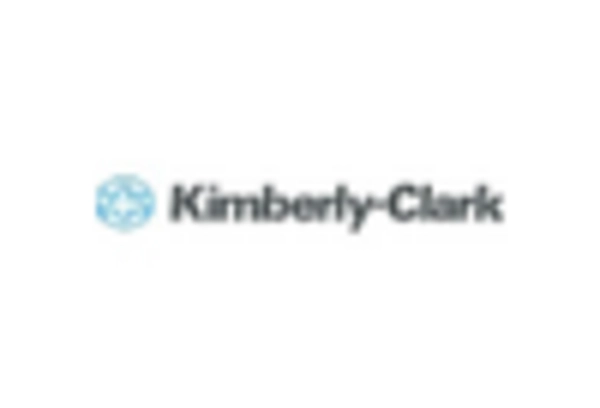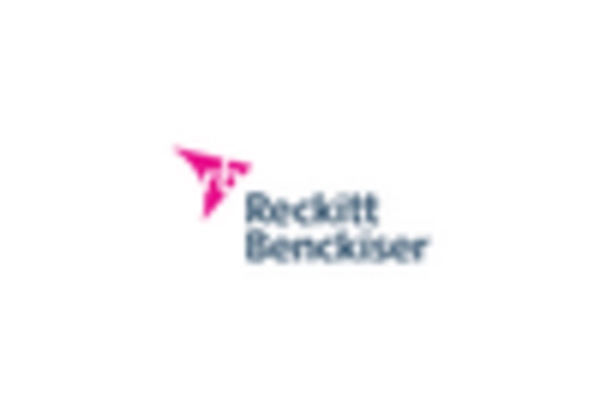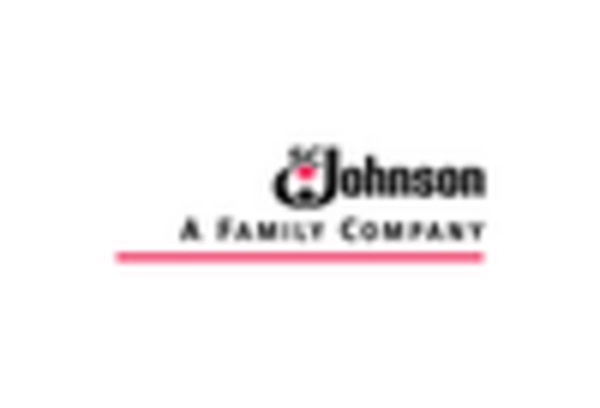E-commerce Growth
The Toilet Care Wipe Market is experiencing a transformation due to the rapid growth of e-commerce platforms. Online shopping has become increasingly popular, providing consumers with easy access to a wide range of toilet care products. Market statistics indicate that e-commerce sales in the hygiene sector have surged by over 25% in recent years. This shift not only enhances product availability but also allows for competitive pricing and promotional offers that attract consumers. As more individuals turn to online shopping for their hygiene needs, the Toilet Care Wipe Market is likely to expand its reach and customer base significantly.
Rising Disposable Income
The Toilet Care Wipe Market is benefiting from the increasing disposable income of consumers, particularly in emerging economies. As individuals have more financial resources, they are more inclined to invest in convenience-oriented products, including toilet care wipes. Market data suggests that regions with rising middle-class populations are witnessing a significant uptick in the purchase of hygiene products. This trend indicates a shift in consumer behavior, where convenience and quality are prioritized. Consequently, the Toilet Care Wipe Market is likely to see sustained growth as more consumers opt for premium products that offer both efficacy and convenience.
Health and Wellness Trends
The Toilet Care Wipe Market is closely aligned with the broader health and wellness trends that are shaping consumer preferences. As individuals become more health-conscious, they are seeking products that contribute to their overall well-being. Toilet care wipes, particularly those that are hypoallergenic and free from harsh chemicals, are increasingly favored by consumers. Market Research Future indicates that approximately 40% of consumers are willing to pay a premium for products that promote health and safety. This trend suggests that the Toilet Care Wipe Market is well-positioned to cater to a demographic that values both hygiene and health, potentially leading to increased sales and market share.
Increased Hygiene Awareness
The Toilet Care Wipe Market is experiencing a notable surge in demand due to heightened awareness surrounding hygiene practices. Consumers are increasingly prioritizing cleanliness in their daily routines, particularly in personal and household care. This trend is reflected in market data, which indicates a projected growth rate of approximately 6% annually over the next five years. The emphasis on hygiene is not limited to individual consumers; businesses, particularly in the hospitality and healthcare sectors, are also adopting toilet care wipes as essential cleaning tools. This shift towards hygiene-centric products suggests that the Toilet Care Wipe Market is well-positioned to capitalize on the growing consumer preference for products that promote cleanliness and sanitation.
Innovative Product Development
Innovation within the Toilet Care Wipe Market is driving growth as manufacturers introduce new formulations and features. The development of biodegradable and eco-friendly wipes is particularly noteworthy, aligning with consumer preferences for sustainable products. Market analysis reveals that the demand for such innovations is on the rise, with an estimated 30% of consumers expressing a preference for environmentally friendly options. Additionally, the introduction of wipes infused with natural ingredients, such as essential oils, caters to the growing trend of wellness and self-care. This focus on innovation not only enhances product appeal but also positions the Toilet Care Wipe Market as a leader in meeting evolving consumer needs.


